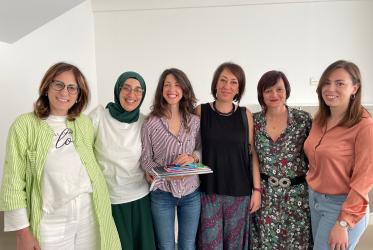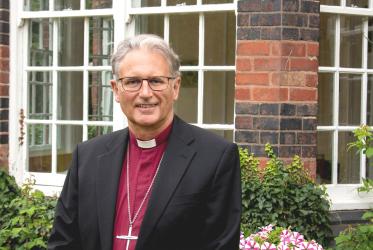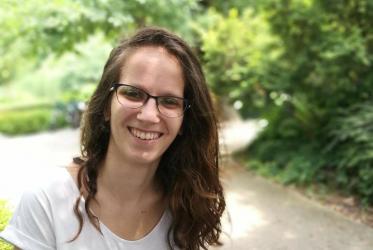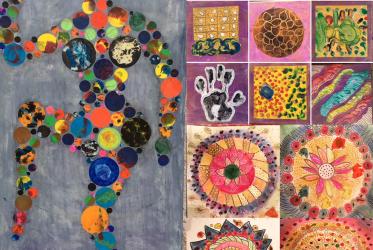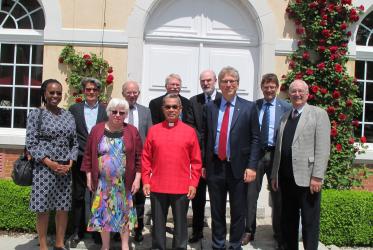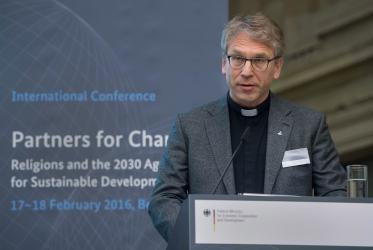Displaying 1 - 20 of 25
“Coventry Cathedral continues to speak a word of hope to the world”
10 December 2020
A faith-based, holistic approach to HIV and AIDS-care
13 March 2019
Turning mercy and compassion into action
04 March 2019
Dr Cecile De Sweemer, the doer of God
30 November 2018
Working toward an AIDS-free generation
26 July 2018
Tveit speaks on Partnership to End Violence Against Children
15 February 2018
World AIDS Day 2017 - prayer service, exhibition, panel discussion
01 December 2017
Ecumenical Centre, Geneva
